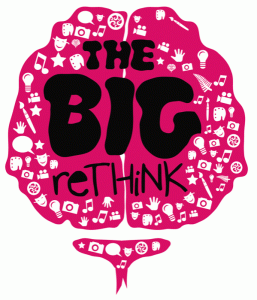Media Release: 11/Dec/2012.

Annie Chapman, a former support worker for a mental-health trust in Porirua, is on a mission to reduce reliance on “medical mental healthcare” which she says can result in dependence and disempowerment, in a bid to promote healthier mental healthcare.
This summer, Chapman will spend five months walking the length of the North Island to advocate “change and choice in mental-health care“.
Annie Chapman’s One Woman Walking: Hikoi for a Big reTHiNK of Mental Healthcare Choices begins in Cape Reinga on December 12th and finishes five months later in Wellington. From December to May Annie will be stopping at towns along the Te Araroa Trail for community meetings to screen short stigma-busting films, discuss what a truly empowering mental-health system would look like and support the Petition for Better Mental-Healthcare Choices, which Annie will present at The Beehive in Wellington in May. Donations to cover costs are gratefully received. Any additional funds raised will be donated to Hearing Voices Network Aotearoa NZ, which provides information and support for people who experience voice hearing.
“I have witnessed life long dependence, drug withdrawal problems and the limited effectiveness of some psychiatric medications,” Ms Chapman says. “Research suggests positive and empowering alternatives exist for better long term outcomes,” she continues.
Chapman advocates a reduced systemic reliance on medications as the first-line treatment for mental-health problems. Ms Chapman wants to see funded access to psycho-social interventions and treatment options for people with mental-health problems to reduce long-term dependence on pharmaceutical interventions and compulsory models of treatment. “We need personal advocacy and psychotherapeutic help promoted and more tailored advice about diet and exercise provided,” says Chapman, “Walking can be one of the most effective anti-depressants there is,” she adds.
Miriam Larsen-Barr, from the Like Minds team at Mind and Body Consultants who coordinate the ongoing Like Minds Big reTHiNK Festival, comments, “We are proud to include One Woman Walking as part of the official Big reTHiNK calendar of events. The message that people with mental-health problems need whole-person approaches to empower their recovery is an important one.”
“It is time our society did some serious analysis. Let’s use our legendary Kiwi kindness and ingenuity to create mental-health services that offer hope of real recovery,” comments Chapman.
Find out when One Woman Walking is visiting a town near you
www.rethink.org.nz/?page_id=1692
> KAITAIA KICK OFF MEETING
>>>Wednesday 20th December
>>>11am to 1pm
>>>at Te Ahu Community Centre
www.facebook.com/events/317503728358665/
For more information contact: Annie Chapman | 0221739954 | anniechapman@actrix.co.nz
One Woman Walking Facebook Page: https://www.facebook.com/pages/Hikoi-for-healthy-choices-in-Mental-Health/150792058391076?ref=ts
One Woman Walking Blog:
http://hikoiforhealthychoices.wordpress.com/
Follow this link to find out more about The Hearing Voices Network Aotearoa NZ www.hearingvoices.org.nz








